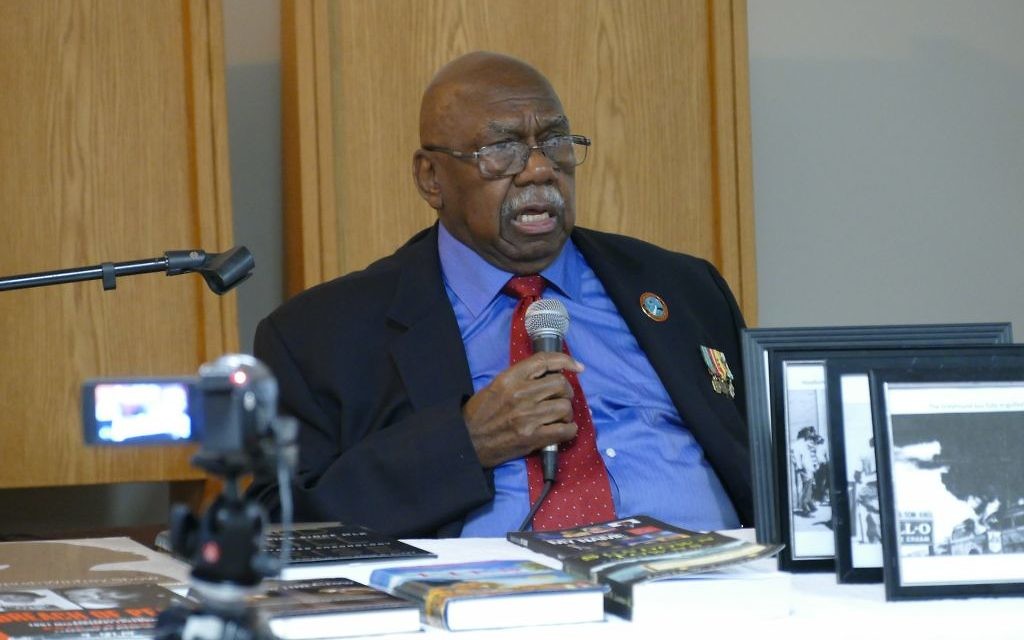Freedom Rider: NFL Anthem Debate Misses Protest’s Point
Charles Person, one of the original 13 Freedom Riders told a group of students that the purpose of a protest is to get people angry.

Atlanta native Charles Person was one of the original 13 Freedom Riders and is a Vietnam War combat veteran. So when he was asked by a Weber School student to give his thoughts on Colin Kaepernick and the recent anthem protests in the NFL, he provided an interesting perspective.
“When Colin Kaepernick first articulated what he was protesting, he said nothing about being disrespectful to the flag or the military. They changed the narrative,” Person told students and parents gathered at Weber on Wednesday, Oct. 18. “Now it’s not about the kids that were shot unarmed. So let’s get it back to where it was, and we can solve it.
“The purpose of a protest is to get people angry and get their attention. He has done that. A protest is not a march down the street with signs. If we had done that, we’d still be carrying signs today, trying to accomplish things we did in the ’60s.”
Get The AJT Newsletter by email and never miss our top stories Free Sign Up
Person was speaking to social studies teacher Mitch White’s “From Topeka to Chicago” civil rights class, which explores the civil rights movement through a Jewish lens. Because the elective class meets at the end of Weber’s school day, parents and faculty were invited to hear Person.
One of three surviving Freedom Riders — Atlanta Congressman John Lewis is another — Person, who is now 68, was active in 1960s sit-ins as well as Freedom Rides, in which activists rode interstate buses throughout the South to highlight the fact that bus lines and bus stations were still segregated.
Oftentimes, the riders met violent resistance from white mobs, especially in small towns.
“Our attackers were smart,” Person told the students. “They would go after the media first and try to destroy the evidence.”
One of the most famous photos, of a white mob beating a Freedom Rider in Birmingham, was reclaimed from a journalist who was beaten and whose camera was smashed, Person told the group.
After the Freedom Rides, Person enlisted in the Marine Corps and spent nine months in Vietnam, where his weapon of choice was a shotgun, he told the students. He was one of the best marksmen in his unit and had the highest IQ, but he said he was denied entrance into the officer training program because of his race.
He tearfully recounted his disappointment that when he returned to Atlanta after serving his country overseas, there were still diners in which he couldn’t eat.
Person concluded with a question-and-answer session and some words of wisdom for the students. “My advice to you is this: Never let anyone else define who you are.”
Weber senior Becca Frenkel contacted Person last year and invited him to speak at the school. The feedback from last year’s visit was so positive that Person was invited back this year, and parents were invited as well.
White’s class is one of more than a dozen new courses being offered at Weber this year, thanks in part to an expanded student body.
“This makes it more real,” said White, who is also the dean of academic planning at the school. “I can teach it, and I can show them pictures of what happened, but seeing somebody who is very articulate talk about it makes it very real. It’s not unlike having a Holocaust survivor speak. Meeting someone who lived through something like this, there’s nothing that beats that.”




comments